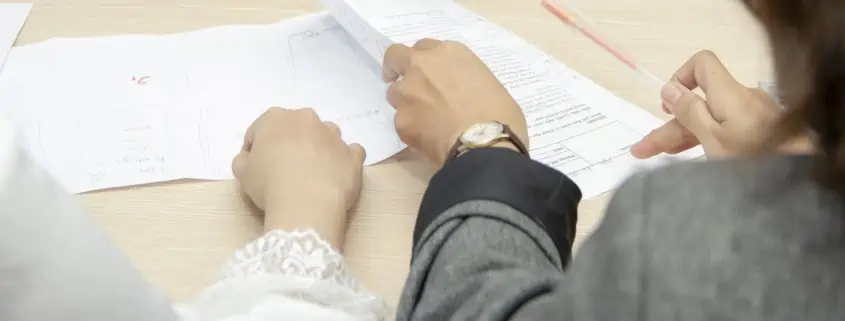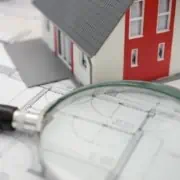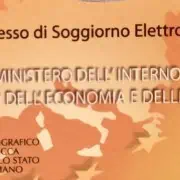Buying a house in Italy: Italian Deed of Sale
Buying a house in Italy. What is a deed of sale?
An Italian deed of sale is the final stage of buying a house in Italy. It completes your property purchase. If you are not familiar with the Italian property purchasing process, you may like to read our free to download guide.
Buying and selling property in Italy requires the assistance of a Notary Public (notaio).
According to Italian law, a notary must remain impartial towards all parties involved in a property transaction.
Notaries work for the Italian State. Their services are not at all the same as engaging your own lawyer to guide you through the process.
Who is liable for detailed property checks and searches prior to completing a deed of sale?
You may think it is the responsibility of your notary to check these matters, however that is absolutely not the case.
Caveat emptor – buyer beware!
You, as the buyer, are responsible for ensuring that you know exactly what you are buying.
[dt_leadmagnet offer=”buying” upgrade=”no” location=”7″ ]
The importance of a certificate of habitability
There are some peculiarities involved in Italian property transactions. One of these oddities relates to requirements and details in a certificate of habitability (certificato di abitabilità).
A certificate of habitability is a document attesting a property is fit for purpose. That is to say, the property meets all health, safety and planning regulations and requirements. It is also a useful document for getting utility connections (power, water, etc.). You will also need a certificate of habitability if you need a mortgage, let your property or when you sell up.
When buying a house in Italy it is crucial to check that a certificate of habitability pertains to the entire property, not just part of it
Take for example the case of Mr and Mrs Smith, who purchased a second home in the hills of the Abruzzo countryside. One of the features that attracted the Smiths to the property was the potential to transform the spacious attic into additional accommodation.
According to the deed of sale, the real estate had a certificate of habitability. The Smiths assumed that their notary had checked the details of the certificate. When the Smiths started to plan their project with a local architect, they discovered that the attic was not part of the certificate of habitability. Where did they stand from a legal point of view?
Limitations and obligations of a notary regarding an Italian deed of sale
You may think the Smiths’ is an unusual situation, however over the years, there have been numerous similar cases. Many of these have landed in the Italian courts.
In one case, the buyers of a property sued a notary for professional failure to verify whether a certificate of habitability pertained to the whole property.
The court rejected any professional liability claim against the notary. The buyers appealed, but to no avail. The judgment stated that:
“a notary’s liability is limited to obtaining a vendor’s declaration that the property is fit for purpose”.
A notary is not responsible for checking property details
The buyers further appealed in the Supreme Court. They argued that a notary, in fulfilling his role as guarantor to the certainty and seriousness of property purchase, has a legal obligation to take all necessary steps to ensure that a property purchase is safe and secure.
The Supreme Court rejected the buyers’ appeal. The ruling established precise boundaries regarding a notary’s professional responsibilities. The ruling stated that a notary must conduct land registry and mortgage searches to ensure there are no legal impediments and/or encumbrances.
Where issues come to light, the notary has a duty to inform parties to the transaction. A notary’s obligations cannot however extend to ascertaining, in practice, the existence of qualities that do not affect the marketability of the property.
In other words, a notary must merely verify the existence of a certificate of habitability. The technicalities and details of what a certificate covers are beyond the notary’s remit and liability.
What if there is no certificate of habitability?
Where a property completely lacks a certificate of habitability, the notary must inform the parties of this and outline legal consequences.
If a property doesn’t have a certificate of habitability, it is still marketable. A certificate of habitability endorses that there are no issues that compromise health and safety. However the absence of a certificate is neither an impediment to the sale or purchase of property nor does it affect the validity of a deed of sale.
The notary will however need to stipulate that the buyer agrees to purchase despite the lack of certificate in the deed of sale. The notary may also add a clause designating one of the parties to the transaction as being responsible for obtaining the relevant certificate.
Planning permission, other checks and searches
It is also worth underlining the aspect of planning permission checks. A notary must verify the presence of planning permission for a property. However, a notary is not responsible for ensuring that the property actually complies with the planning permission.
As with the certificate of habitability and other aspects, the onus is on the buyer to conduct searches relating to planning.
Due diligence is key before you sign an Italian deed of sale. Failure to check everything thoroughly can lead to expense and pain later on. It may also impact future saleability of your Italian property.
Finally …
Liability related to an Italian deed of sale, involving not only the selling and buying parties but also a notary public, represents a complex legal matter which can have far-reaching consequences.
For many, buying a property in Italy represents a huge investment. For this reason, it is of the utmost importance to engage an independent lawyer for guidance and to review the Italian deed of sale before you sign it. Such a review is typically inexpensive and serves to make sure your interests are protected.
If you are buying a property in Italy, you should always seek independent legal advice. Should you need further information concerning a deed of sale, please contact our legal professionals at De Tullio Law Firm.
You may also be interested in Estate agents are neither lawyers nor independent. We are both.











